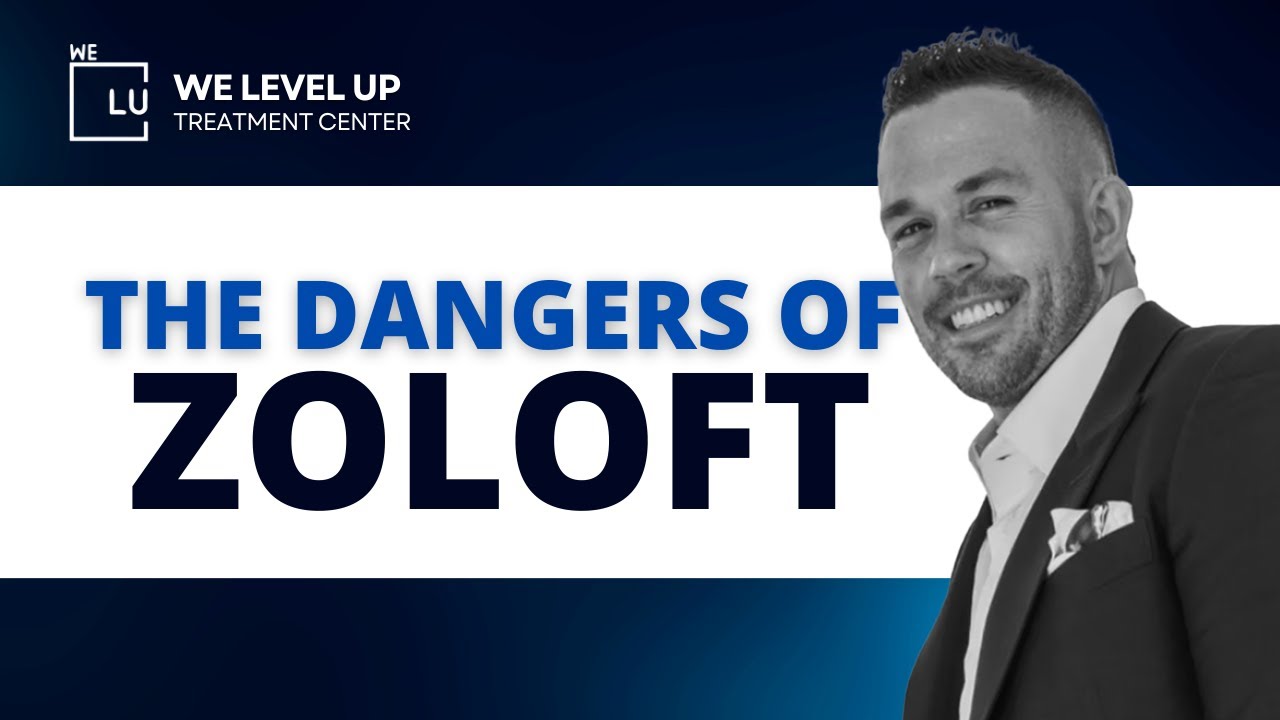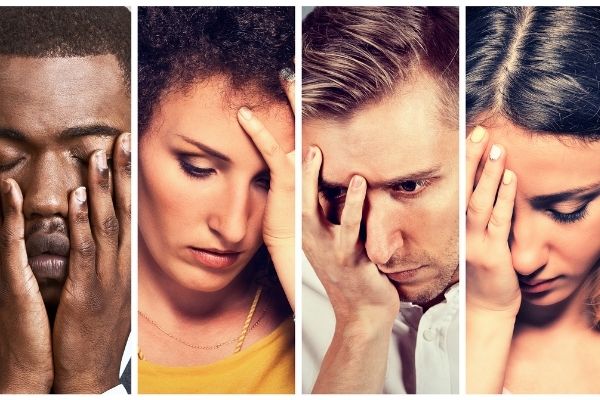What is Smiling Depression
Smiling depression can be as silent as it is imperceptible, but for the person suffering from this disorder, its effects are as palpable as they are real. Smiling depression is also seems as High-Functioning Depression.
Although “smiling depression” isn’t a clinical diagnosis, for many people, it’s a real problem. Smiling depression can be summarized as a silent enemy that allows those who suffer from this disorder, to lead their ordinary lives, to lead normal lives, with social, emotional and work activities; meeting goals, family commitments, work and other activities, socializing daily and keeping their responsibilities up to date.
However, smiling depression can be a chronic and enduring illness. Although its symptoms are less severe than other types of depression, this doesn’t mean it’s insignificant to those who struggle with it.
How To Recognize ‘Smiling Friends Depressed’
Although it varies from person to person, the symptoms of smiling depression can be subtle signs that prevent you from going about your daily activities with the same ease as usual.
Even if you carry out your tasks with some degree of difficulty, imperceivable to some, here is a list of symptoms of smiling depression:
- Persistent Low Mood: While individuals with smiling depression may still go about their daily activities, they often experience a persistent low mood that lasts for an extended period.
- Fatigue: Constant feelings of tiredness and lack of energy, even after a full night’s sleep, may be a sign of depression.
- Difficulty Concentrating: Trouble focusing on tasks, making decisions, or remembering details may be indicative of underlying depressive symptoms.
- Feelings of Guilt or Worthlessness: A persistent sense of guilt, self-blame, or feelings of worthlessness are common in individuals with depression.
- Social Withdrawal: Even though someone may appear socially active, they may withdraw emotionally or avoid deeper connections.
- Perfectionism: An intense desire for perfection and a fear of failure can be a coping mechanism for underlying depressive feelings.
- Difficulty Expressing Emotions: Individuals with high-functioning or smiling depression may find it challenging to express their emotions or may minimize their feelings when discussing them with others.
- Loss of Interest or Pleasure: A diminished interest or pleasure in once enjoyable activities can be a symptom of depression.
- Chronic Pessimism: A consistently negative outlook on life and a tendency to focus on the negative aspects of situations may be indicative of high-functioning depression.

Learn More:
Get Mental Health counseling that works. Discover professional help from We Level Up’s addiction and mental health therapists. Start getting support with a free call to our addiction hotline.
Get Help. Get Better. Get Your Life Back.
Searching for Accredited Drug and Alcohol Rehab Centers Near You? We Level Up Texas Is Opening Soon!
Even if you have failed previously and relapsed, or are in the middle of a difficult crisis, we stand ready to support you. Our trusted behavioral health specialists will not give up on you. When you feel ready or just want someone to speak to about therapy alternatives to change your life call us. Even if we cannot assist you, we will lead you to wherever you can get support. There is no obligation. Call our network hotline today.
FREE Addiction Hotline – Call 24/7Top 10 Signs You Have Smiling Depression
Although it is called ‘high functioning’ functional depression, it doesn’t quite work. Although the symptoms are silent, people who suffer from this form of depression are able to go on with most of life in the same way as someone without depression.
Smiling depression has stages where the person may have more energy than normal, as well as others where just getting out of bed to start the day can be a real challenge. Here are 10 warning signs that together with the diagnosis of a professional can check the suspicion of suffering from high-functioning depression. If you are wondering, Do I have high-functioning depression? Check this smiling depression test:

- Overeating: A smiling friend depressed feels the need to eat all the time due to depression and feelings of hopelessness, disinterest and loneliness.
- Insomnia or oversleeping: Due to certain stages of depression, the person often experiences periods of high energy, or lack of sleep, but then the body compensates with stages where the person is unable to get out of bed due to excessive tiredness and sleepiness.
- Lack of energy: Following the previous point, lack of energy without cause or explanation is a common denominator in people with functional depression followed by energy ‘surges’.
- Continuous low mood: Although they get out of bed every day, people struggling with smiling depression feel no mood or interest in any aspect of their lives, so nothing excites them.
- Reduced self-esteem: In addition to the above, some people around them may perceive them as gluttonous, cynical or lacking in empathy, as they do not show much interest in anything or anyone, so following a chain of effects, the self-esteem of people with depression usually drops rapidly, affecting their personal relationships, hygiene and socialization.
- Difficulty in making decisions: Sometimes it is difficult for people with functional depression to make decisions, as maintaining focus on an activity can be difficult, and making a decision can take more time than making a decision.
- Feelings of hopelessness: Smiling Depression leads to poor performance, feeling useless, and dispensable, and filling the mind with negative thoughts lacking in hope, guilt and self-esteem.
- Decreased appetite: Weight loss and decreased appetite often go hand in hand with a lack of energy and wanting to sleep all the time.
- Social isolation: Some cases register psychotic symptoms such as paranoia, which causes people struggling with depression to isolate themselves and avoid contact with family, and friends, as well as social gatherings. Activities they once enjoyed are now activities they want to avoid at all costs.
- Passive suicidal thoughts: Emotional changes are so affecting that suicidal thoughts may appear from time to time and in a passive manner.

Get Your Life Back
Find Hope & Recovery. Get Safe Comfortable Detox, Addiction Rehab & Dual Diagnosis High-Quality Care.
FREE Addiction Hotline – Call 24/7Why Do People Smile While Suffering Depression?
It’s not uncommon to watch people faking happiness, as it’s not common to see people sharing their depression with others, there are many professional and personal reasons to keep privately your depressive disorder.
- Fear of Disappointing or Bothering Their Relatives: People usually don’t want to worry their relatives with personal problems or appear weak in front of their loved ones. Many individuals don’t want to burden anyone else with their struggles.
- Embarrassment: Due to poor and old-fashioned believes, depression seems like a weakness in character, some people are taken by ‘problematic’ when once expressed their mental health issues.
- Professional Backlash: In professional fields, individuals may refrain from sharing their problems, as doing so can sometimes lead to negative consequences from their partners and colleagues. Being perceived as depressed or weak by relatives might potentially impact promotions or future leadership opportunities in projects.
- Guilt: Because guilt tends to accompany depression, sometimes people don’t feel as though they should be depressed. They might think they have a good life and shouldn’t feel bad.
- Perfectionism: In today’s world dominated by social media, where idealized lives are constantly showcased online, it can be a hostile space for individuals struggling with mental health and depression issues. The prevalence of curated perfection on the internet has given rise to a phenomenon known as smiling depression, making it all the more challenging for those silently battling their mental health struggles.
The Link Between Anxiety And Depression
While anxiety is generally considered a high-energy state and depression a low-energy state, anxiety and depression are more closely related than you might think. A person with depression often experiences a lot of anxiety, possibly even to the extent of having panic attacks.
Normally anxious state leads to worry or thinking about some problem, and then you feel bad about it, which leads you to think that you have failed, and you feel sad and depressed. So it’s a cycle. Anxiety and Depression have a very close relationship, but complicated.
- The chance of acquiring depression is much higher when an anxiety disorder already exists. Nearly half of those with major depression also suffer from severe and persistent anxiety.
- People who are depressed often feel anxious and worried. One can easily trigger the other, with anxiety often preceding depression.
- People with post-traumatic stress disorder (PTSD) are especially prone to developing depression.
Opening Soon! First-Class Facilities & Amenities
World-Class High-Quality Addiction & Mental Health Rehabilitation Treatment
Coming Soon! Rehab Centers TourRenowned Addiction Centers. Serene Private Facilities. Inpatient Rehab Programs Vary.
FREE Addiction Hotline – Call 24/7Proven recovery success experience, backed by a Team with History of:
15+
Years of Unified Experience
100s
5-Star Reviews Across Our Centers
10K
Recovery Success Stories Across Our Network
- Low Patient to Therapist Ratio
- Onsite Medical Detox Center
- Comprehensive Dual-Diagnosis Treatment
- Complimentary Family & Alumni Programs
- Coaching, Recovery & Personal Development Events
Treating Smiling Depression
Identifying the indications of smiling depression can be challenging. This subtle mental health condition operates discreetly, masked by the individual’s capacity to maintain functionality. Even for those grappling with such emotions, recognizing the existence of an underlying mental illness isn’t straightforward.
Seeking assistance is crucial, as treatment can enhance life satisfaction, elevate mood, boost overall functioning, and contribute to a more positive outlook, thereby improving overall quality of life. Here are some of our therapies used against depression disorder:
The most effective and evidence-based psychotherapies that could help treatment-resistant depression include:
- Cognitive Behavioral Therapy (CBT).
- Dialectical Behavior Therapy (DBT).
- Psychodynamic Therapy.
- Interpersonal Therapy (IPT).
- Mindfulness-Based Cognitive Therapy (MBCT).
- Acceptance and Commitment Therapy (ACT).
- Behavioral Activation.
- Schema Therapy.
- Eye Movement Desensitization and Reprocessing (EMDR).
Overcoming Depression. Find the Support You Need.
No matter how hopeless things may feel, you can get better with depression treatment — many people do. Effective depression treatment depends on recognizing there is a problem, seeking to address it, and following a treatment plan. This can be tough when you have depression, but patience is the key when beginning treatment. Find the help you are looking for in We Level Up Texas facility.
Overcoming depression is often a challenging process to go through alone. However, you can manage depression symptoms and successfully recover with therapies and a robust support system at the We Level Up treatment Texas Center. If you require assistance with your recovery journey, contact a We Level Up treatment professional now. Your call is free and confidential.
Get a free rehab insurance check without any obligation.
Opening Soon! World-class, Accredited, Anticipated 5-Star Reviewed, Effective Addiction & Mental Health Programs. Complete Behavioral Health Inpatient Rehab, Detox plus Co-occuring Disorders Therapy.
FREE Addiction Hotline – Call 24/7End the Addiction Pain. End the Emotional Rollercoaster. Get Your Life Back. Start Drug, Alcohol & Dual Diagnosis Mental Health Treatment Now. Get Free No-obligation Guidance by Substance Abuse Specialists Who Understand Addiction & Mental Health Recovery & Know How to Help.
Ultimate Depression Treatment Methods
Struggling with depression? Discover effective treatments, understand the types, and explore the connection between depression and addiction. This guide covers the crucial aspects of depression, its various forms, and practical strategies for overcoming it.
Start a New Life
Begin with a free call to an addiction & behavioral health treatment advisor. Learn more about our dual-diagnosis programs. The We Level Up treatment center network delivers recovery programs that vary by each treatment facility. Call to learn more.
- Personalized Care
- Caring Accountable Staff
- World-class Amenities
- Licensed & Accredited
- Renowned w/ 100s 5-Star Reviews
We’ll Call You
Search We Level Up Depression or other Mental Health Topics & Resources
Sources
- Mental Health Conditions: Depression and Anxiety – Centers for Disease Control and Prevention (CDC) https://www.cdc.gov/tobacco/campaign/tips/diseases/depression-anxiety.html
- Facts About Suicide – Centers for Disease Control and Prevention (CDC)
- Harvard Magazine – Social Media Use and Adult Depression
- Karadara, Nicholas; Sept 2022 Digital Madness






